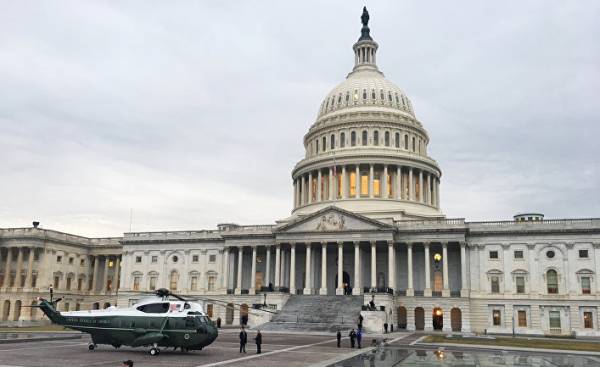
In the autumn of last year, the United States tried to work out the correct response to Russia’s intervention in the presidential election of 2016. In December, President Barack Obama announced the imposition of retaliatory measures, however, those sanctions did not cause significant harm to the Kremlin because he interfered in the American democratic process and does not guarantee that this will not happen again.
The successor Obama has yet to realize the urgent need for further action. Although the members of his family and advisers in recent times accused it of collusion with Russia, the President, trump continued to resist the introduction of new sanctions. But it’s finally time for good news: on Thursday, July 27, Congress put aside bipartisan differences and fulfilled the civic duty, which was evaded Mr. trump, finally approving a bill that would impose new sanctions against Russia and significantly restricts the ability of Mr. trump’s personally to cancel the new and existing sanctions. The Senate approved the bill by 98 votes to 2, the House of representatives supported it by 419 votes to 3.
This bill introduces credit and other restrictions against companies participating in Russian energy projects, against which financial institutions support these projects, and against suppliers of weapons to Syria. Under this bill, the President is obliged to inform Congress of its desire to amend the anti-Russian sanctions, and Congress is entitled to block these changes.
The President sends mixed signals about what will happen next. First, his aides have said that Mr. trump will have no choice but to put his signature under this bill. But on Thursday, July 27, the new communications Director of the White house Anthony Scaramucci (Anthony Scaramucci) suggested that Mr. trump could use its veto power, ostensibly to continue to take “more stringent” law. But as you said the minority leader in the Senate, Chuck Schumer (Chuck Schumer), “I’m from new York and I know how to recognize a bluff.”
If Mr. trump will veto this bill, it will be another proof of his desire to be of service to the President of Russia Vladimir Putin. In this case, the Congress will be obliged to cancel the decision of the President. Mr. trump within a few months led an aggressive lobbying campaign, interfering with the work of the Congress and that further delay would delay the imposition of sanctions against Iran and North Korea, which is also included in this bill and which the administration supports.
The new sanctions based on the sanctions that Mr. Obama has imposed against Russia in December. Then freezing of accounts and visa bans have affected the two leading intelligence agencies of Russia, the FSB and GRU, U.S. authorities have seized two Russian diplomatic complex in Maryland and new York, which, according to some, was used to conduct surveillance. Since then, a lot of new data about Russia’s intervention in the elections, and some of them even pointed to the direct involvement of Mr. Putin.
Most of all, Mr. trump concerned about the point of the bill, which gives Congress the right to revoke its decision, if the President tries to remove part of the sanctions, including the return of diplomatic systems, what Moscow actively insists. Typically, Congress gives the President some freedom of action on the issue of sanctions, so that they can be used as a bargaining chip in negotiations. But at the moment, the Congress is convinced that the President cannot be trusted, and Russia must be held accountable, even though America still needs to try to establish cooperation with Russia in the Syrian and other issues.
Not surprisingly, Russia has warned the United States that a new package of sanctions will significantly harm Russian-American relations and will entail the imposition of retaliatory measures. Russia, whose economy is now experiencing a difficult period, experiencing anxiety: in the words of one adviser, Mr. Putin, sanctions could further slow down economic growth.
The Europeans also expressed their dissatisfaction with the new package of sanctions, noting that these sanctions threaten the project of construction of the gas pipeline through which Russian gas must be supplied to Germany. Senator Ben Cardin (Ben Cardin), a leading Democrat in the Senate Committee on foreign relations, held consultations with the allies and added to the text of the bill is wording that allows you to make exceptions for such projects. But despite this, the allies threaten the United States with the introduction of counter-sanctions.
Sanctions often cause a lot of controversy and discontent. However, they remain non-violent method of exposure — in this case of timely and justified — which allows to show that a country has crossed the line and apply pressure to the leaders of this country reversed its course.







